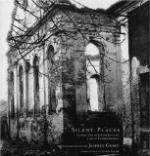But the other, Sam Bolton, the veteran woodsman, stood in rapt contemplation, his wide-seeing, gentle eyes of the old man staring with the magnitude of his revery.
Beyond the black velvet band lay the wilderness. There was the trackless country, large as the United States itself, with its great forests, its unmapped bodies of water, its plains, its barren grounds, its mountains, its water courses wider even than the Hudson River. Moose and bear, true lords of the forest, he might see any summer day. Herds of caribou, sometimes thousands strong, roamed its woodlands and barrens. Wolves, lurking or bold as their prey was strong or weak, clung to the caribou bands in hope of a victim. Wolverines,—unchanged in form from another geological period—marten, mink, fisher, otter, ermine, muskrat, lynx, foxes, beaver carried on their varied affairs of murder or of peaceful industry. Woods Indians, scarcely less keen of sense or natural of life than the animals, dwelt in their wigwams of bark or skins, trapped and fished, made their long migrations as the geese turn following their instinct. Sun, shadow, rain, cold, snow, hunger, plenty, labour, or the peaceful gliding of rivers, these had watched by the Long Trail in the years Sam Bolton had followed it. He sensed them now dimly, instinctively, waiting by the Trail he was called upon to follow.
Sam Bolton had lived many years in the forest, and many years alone. Therefore he had imagination. It might be of a limited quality, but through it he saw things in their essences.
Now from the safe vantage ground of the camp, from the breathing space before the struggle, he looked out upon the wilderness, and in the wilderness he felt the old, inimical Presence as he had felt it for forty years. The scars of that long combat throbbed through his consciousness. The twisting of his strong hands, the loosening of the elasticity, the humbling of the spirit, the caution that had displaced the carelessness of youth, the keenness of eye, the patience,—all these were at once the marks of blows and the spoils of victory received from the Enemy. The wilderness, calm, ruthless, just, terrible, waited in the shadow of the forest, seeking no combat, avoiding none, conquering with a lofty air of predestination, yielding superbly as though the moment’s victory for which a man had strained the fibres of his soul were, after all, a little, unimportant thing; never weary, never exultant, dispassionate, inevitable, mighty, whose emotions were silence, whose speech was silence, whose most terrible weapon was the great white silence that smothered men’s spirits. Sam Bolton clearly saw the North. He felt against him the steady pressure of her resistance. She might yield, but relentlessly regained her elasticity. Men’s efforts against her would tire; the mechanics of her power remained constant. What she lost in the moments of her opponent’s might, she recovered in the hours of his weakness, so that at the last she won, poised in her original equilibrium above the bodies of her antagonists. Dimly he felt these things, personifying the wilderness in his imagination of the old man, arranging half-consciously his weapons of craft in their due order.




